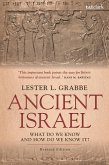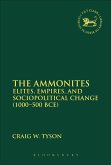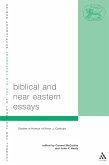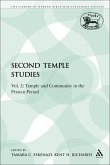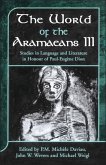It has often been argued that Zerubbabel, the Jewish governor of Yehud at the time of the rebuilding of the temple (late 6th century BCE), was viewed by the prophets Haggai and Zechariah as the new king in the line of David. In this new study, Rose offers a contrary proposal for the interpretation of the oracles in Haggai 2 and Zechariah 3 and 6. He traces their background in the pre-exilic prophets, pays special attention to often neglected details of semantics and metaphor, and concludes that neither Haggai nor Zechariah designated Zerubbabel as the new king in Jerusalem. Instead, the oracles in Zechariah 3 and 6 should be seen as fully messianic.
Bitte wählen Sie Ihr Anliegen aus.
Rechnungen
Retourenschein anfordern
Bestellstatus
Storno



